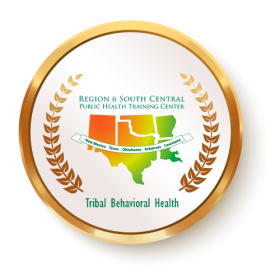
Tribal Behavioral Health 103: The Opioid Epidemic and American Indian/Alaska Native Communities
Course Description:
Tribal Behavioral Health 103: The Opioid Epidemic and American Indian/Alaska Native Communities is the third in a four-course learning series.
This course will provide Tribes and Tribal Serving Organizations and public health professionals with information about a very important problem that our country is facing—the opioid epidemic—and, more specifically, how the opioid problem is impacting tribal or American Indian/Alaska Native (AI/AN) communities.
The Behavioral Health curriculum is designed to provide general guidance and understanding to increase knowledge among tribal health departments.
Target Audience
Academic Faculty/Staff, Federal Government Employees, State Government Employees, Local Government Employees, Non-Government Employees and Students.
Learning Objectives
- Interpret the recent public health data on opioid use rates for American Indian/Alaska Natives (AI/ANs)
- Identify the impact of the opioid crisis in relation to AI/ANs
- Recognize the types of treatment for opioid misuse
Instructor:

Brady Garrett, PhD
Brady Garrett is an enrolled citizen of the Oklahoma Cherokee Nation.
He has worked for Cherokee Nation Behavioral Health for the past five years in research and clinical capacities. Brady earned his PhD in counseling psychology in 2013.
His research interests include American Indian health disparities, prescription opioid misuse, suicide prevention, and the MMPI-2-RF.
Brady’s clinical interests include the implementation of the MMPI-2-RF, motivational interviewing, suicide prevention interventions, and anxiety disorders.
Available Credit
- 1.00 Participation/CETulane Professional and Continuing Education (PaCE) awards 1.00 hour(s) of credit for completing Tribal Behavioral Health 103: The Opioid Epidemic and American Indian/Alaska Native Communities
Price
Required Hardware/software
System Settings
This course is designed to work most effectively if your computer and internet connection meet certain minimal requirements. This course can be accessed using a Windows 10 PC or a Mac with High Sierra1, Mojave, or Catalina. Pop-up blockers should be disabled when viewing the course. Internet Explorer 11 (for Windows 10), or the current version of Google Chrome, Mozilla Firefox, or Apple Safari (for Windows 10 and or Mac) is required. Many of our courses require Java and JavaScript enabled.
Links to External Websites
Links to websites outside this course will open in a new window or tab. Some browsers may minimize the course window. If this occurs, maximize the course window to return to the course.
Adobe Acrobat Reader (for desktops and laptops)
Adobe Acrobat Reader is required to access some documents in this course. If you need to download a free copy of Acrobat Reader, click here.
Internet Connection Speed
A minimum download speed of 1.5 Mbps is recommended for an optimal experience, which is commonly the speed associated with a basic DSL or a cellular/satellite connection. A faster connection, such as cable or fiber service, with further enhance your online experience. A Wi-Fi connection is generally acceptable, but it is dependent upon one of the two services mentioned above. You can check your internet connection speed at http://www.speedtest.net/.

 Facebook
Facebook X
X LinkedIn
LinkedIn Forward
Forward